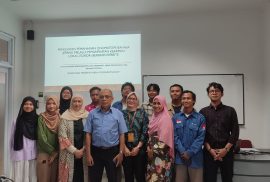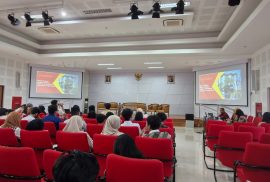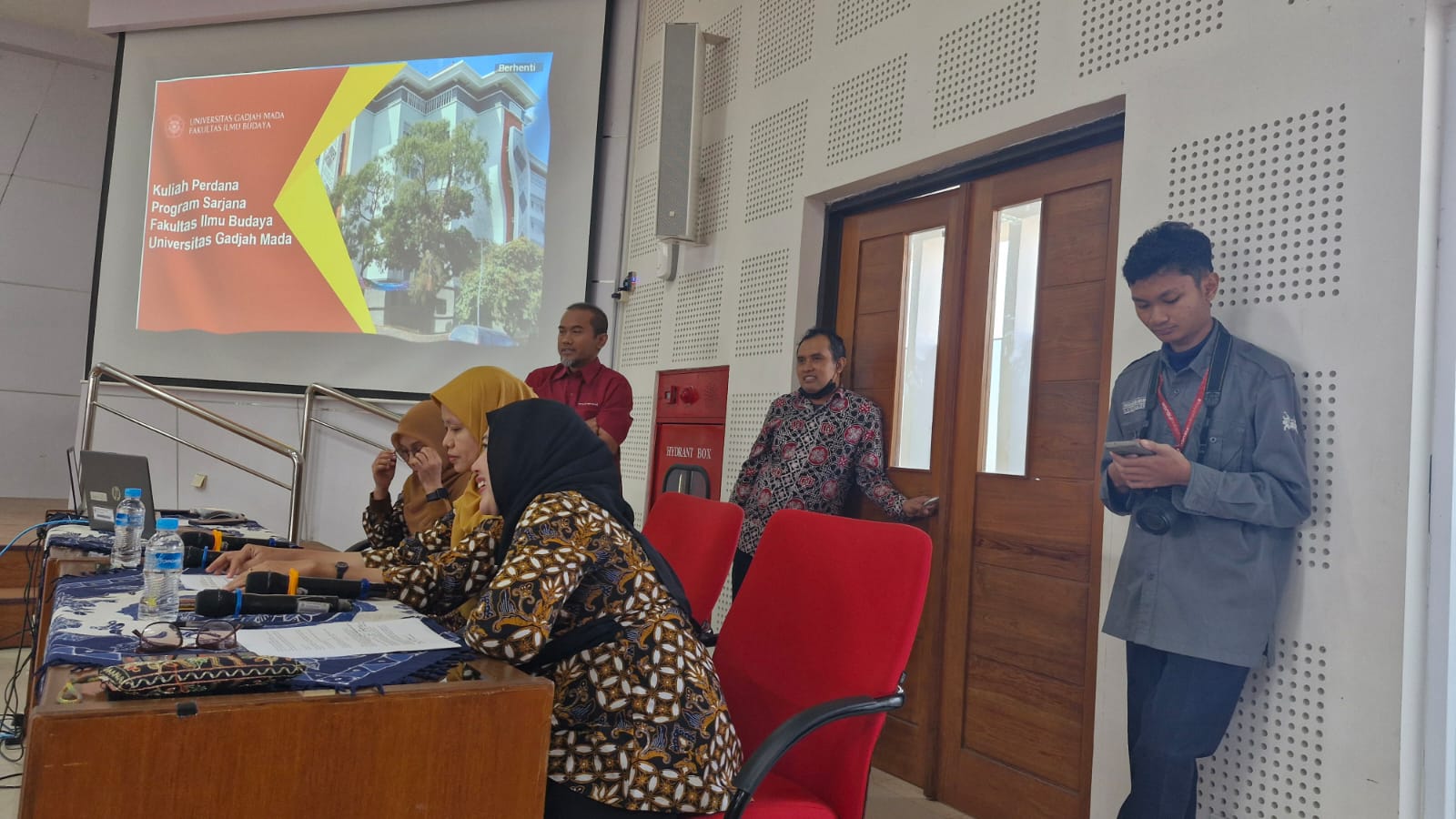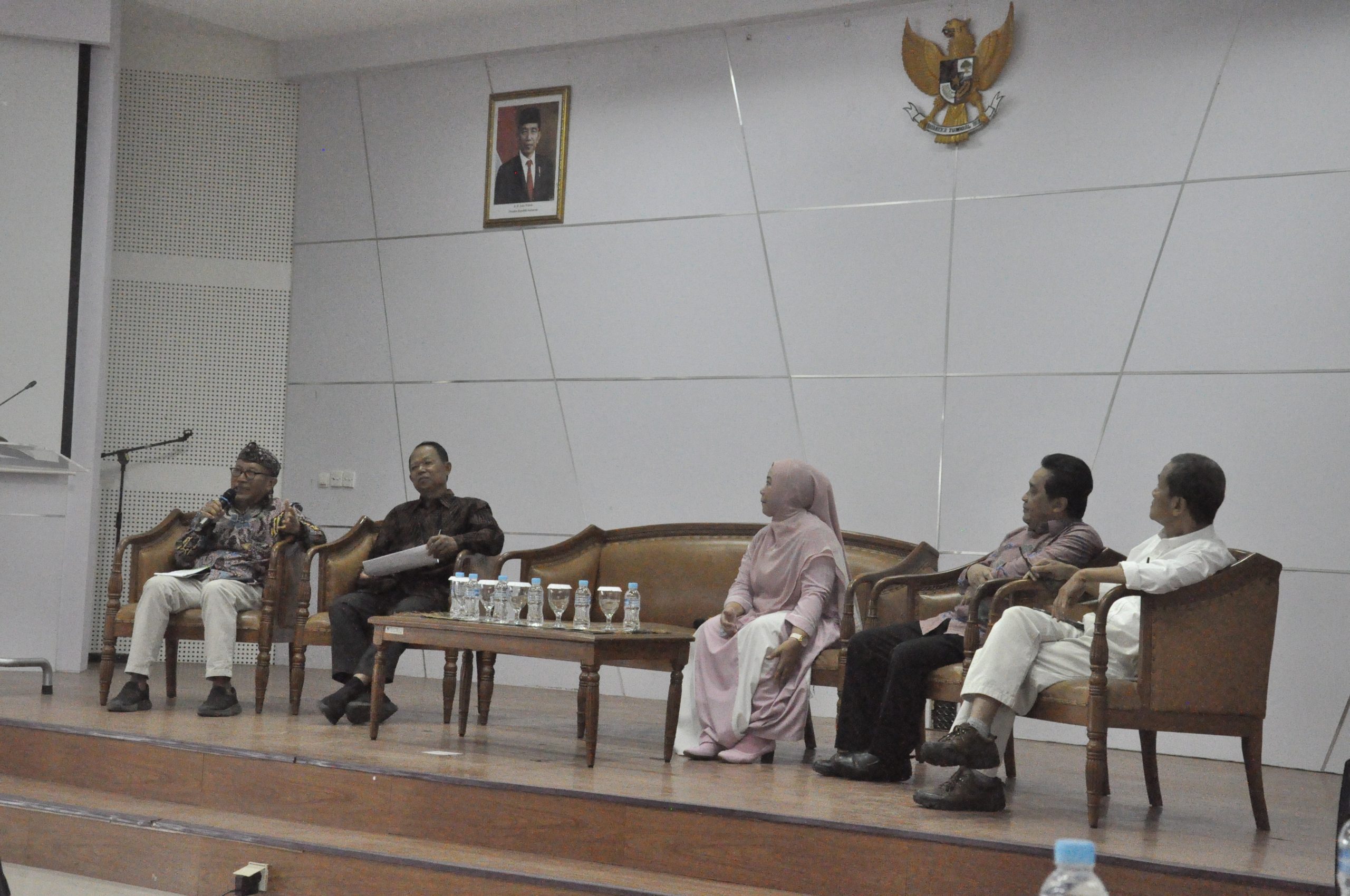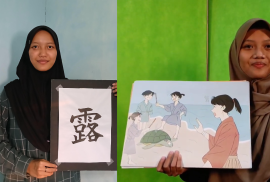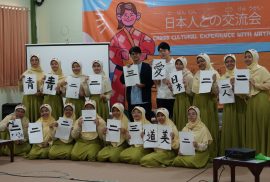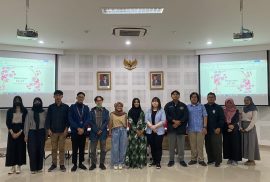Japanese Language and Culture Study Program Holds Lecture with Lecturer from Universitas Padjadjaran
On Thursday, September 25, 2024, the Japanese Language and Culture study program welcomed guest lecturers from Padjadjaran University. The arrival of the lecturer from Padjadjaran University was related to the implementation of a joint lecture on the topic of Onomatopoeia.
The lecturers from Padjadjaran University, consisting of lecturers from the Sundanese Literature and Japanese Literature study programs, shared their research progress on the topic of Strengthening Understanding of Japanese Onomatopoeia through Website-Based Utilization of Local Wisdom (Sundanese) to students and lecturers of the Japanese Language and Culture study program.
In the project, lecturers from Sundanese Literature and Japanese Literature of Padjadjaran University are trying to develop a dictionary of Japanese onomatopoeia that can be found in Sundanese. The dictionary is still made in Indonesian-Japanese with of course an explanation of the meaning of the onomatopoeia. The existence of the Sundanese equivalent is to facilitate the understanding of the meaning of onomatopoeia for Japanese language learners, in this case Sundanese Japanese language learners. Then, the lecturer from Padjadjaran University also explained their plan to include pictures or visualizations of onomatopoeia in the dictionary to make it easier to understand the meaning of onomatopoeia. This project was carried out with the hope of facilitating the understanding of Japanese onomatopoeia through its equivalent in the local language. The lecturer from Japanese Language and Culture agreed to this because they often encounter cases where students find it easier to find equivalents and understand the meaning of onomatopoeia in the local language than in Indonesian.
At the end of the lecture session, the lecturer of Japanese Language and Culture gave a suggestion to attract Japanese Literature study programs in various universities spread throughout the region in order to increase the variety of equivalents in the local language of each region. In addition, there was an input to create a website so that the public can also participate in the development of the dictionary because it does not rule out the emergence of new onomatopoeias. This activity was then closed with a group photo session.
Author: Valentina Pramahita Iswari
Editor: Yulia Agustiani

